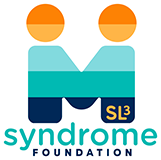MSL3 (Basilicata-Akhtar) Syndrome is an ultra-rare genetic disorder caused by the mutation of the MSL3 gene. There are around 50 registered diagnoses worldwide, but we believe that there are more children and adults out there who have not yet been able to find a diagnosis.
MSL3 Syndrome is a newly-discovered disease and in desperate need of attention. There have been promising studies identifying the disorder and showing potential for treatment, but continued research is essential for positive outcomes. Together with our community, the MSL3 Syndrome Foundation is working to catalyze that progress by spreading awareness and driving research.
MSL3 Syndrome Symptoms
With a limited number of people diagnosed and variance across known cases, not every person with MSL3 Syndrome will have the same symptoms or severity of symptoms. However, there are common signs and symptoms that those affected may face.
- Global developmental delays
- Neurocognitive deficits
- Cardiovascular and hematology complications
- Gastrointestinal disturbance and feeding difficulties
- Musculoskeletal abnormalities and hypotonia
There are also multiple cases in which those with MSL3 Syndrome are also diagnosed with autism spectrum disorder, likely as a result of MSL3.
MSL Genes
Proteins encoded by MSL genes, like the MSL3 gene, activate other genes and enable them to serve their purposes. One article by Max-Planck Gesellschaft compares the action to the volume dial on a radio — MSL genes activate other genes to the appropriate level.
Mutations in the MSL3 gene can lead to confusion within the central genes involved in development. Using a clock as another metaphor, those with MSL3 syndrome have all of the cogs and gears that a clock needs to function normally, but not the grease to help them all move in the correct direction.
In MSL3 Syndrome patients, the developmental genes themselves are intact, but the epigenetic program that is precisely determining how the genetic information will be fine-tuned is impaired. This could have led to a global delay in the development of multiple organs, including the brain.
Scientists discover cause of rare syndrome by Max-Planck Gesellschaft
Initial research indicates that the MSL3 gene may play diverse and crucial roles throughout a child’s development and beyond.
MSL3 Studies and Research
There have been two promising studies identifying MSL3 Syndrome and showing potential for treatment. These two studies, along with documentation about registered diagnoses, have shaped all that we know about this ultra-rare disease.
- De novo mutations in MSL3 cause an X-linked syndrome marked by impaired histone H4 lysine 16 acetylation, Basilicata, M.F., Bruel, AL., Semplicio, G. et al. De novo mutations in MSL3 cause an X-linked syndrome marked by impaired histone H4 lysine 16 acetylation. Nat Genet 50, 1442–1451 (2018). https://doi.org/10.1038/s41588-018-0220-y
- Defining the genotypic and phenotypic spectrum of X-linked MSL3-related disorder, Brunet T, McWalter K, Mayerhanser K, et al. Defining the genotypic and phenotypic spectrum of X-linked MSL3-related disorder. Genet Med. 2021;23(2):384-395. doi:10.1038/s41436-020-00993-y
Continued research and increased awareness are essential for positive outcomes. Even within these first two studies, researchers have pinpointed avenues of treatment to further investigate that carry the potential to alleviate symptoms for those affected.

